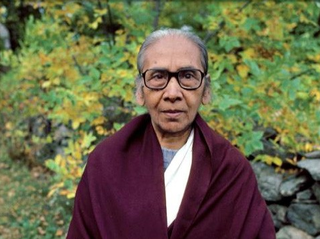A Quote by Francoise d'Aubigne, Marquise de Maintenon
Pleasure and pain, the good and the bad, are so intermixed that we can not shun the one without depriving ourselves of the other.
Related Quotes
It's easy for us to feel separate from other people and from other forms of life, especially if we don't have a reliable connection to our own inner world. Without insight into our internal cycles of pleasure and pain, desires and fears, there is a strong sense of being removed, apart or disconnected. When we do have an understanding of our inner lives, it provides an intuitive opening, even without words, to the ties that exist between ourselves and others.
The discovery of the good taste of bad taste can be very liberating. The man who insists on high and serious pleasures is depriving himself of pleasure; he continually restricts what he can enjoy; in the constant exercise of his good taste he will eventually price himself out of the market, so to speak. Here Camp taste supervenes upon good taste as a daring and witty hedonism. It makes the man of good taste cheerful, where before he ran the risk of being chronically frustrated. It is good for the digestion.
It is important to distinguish between sense-pleasure and sense-desire. There is nothing wrong with sense-pleasure. Pleasure and pain are part of our human experience. Sense-desire, on the other hand, is the grasping at pleasure or the avoidance of pain. This is what creates suffering-grasping and avoidance.
The convoluted wording of legalisms grew up around the necessity to hide from ourselves the violence we intend toward each other. Between depriving a man of one hour from his life and depriving him of his life there exists only a difference of degree. You have done violence to him, consumed his energy.
You know the pain is part of the whole thing. And it isn’t that you can say afterwards the pleasure was greater than the pain and that’s why you would do it again. That has nothing to do with it. You can’t measure it, because the pain comes after and it lasts longer. So the question really is, Why doesn’t that pain make you say, I won’t do it again? When the pain is so bad that you have to say that, but you don’t.
Other animals can make sounds, and sounds can indicate pleasure and pain. But language, a distinctly human capacity, isn´t just for registering pleasure and pain. It´s about declaring what is just and what is unjust, and distinguishing right from wrong. We don´t grasp these things silently, and then put words to them; language is the medium through which we discern and deliberate about the good.
Pain? Yes, of course. Racing without pain is not racing. But the pleasure of being ahead outweighed the pain a million times over. To hell with the pain. What's six minutes of pain compared to the pain they're going to feel for the next six months or six decades. You never forget your wins and losses in this sport. YOU NEVER FORGET.
































